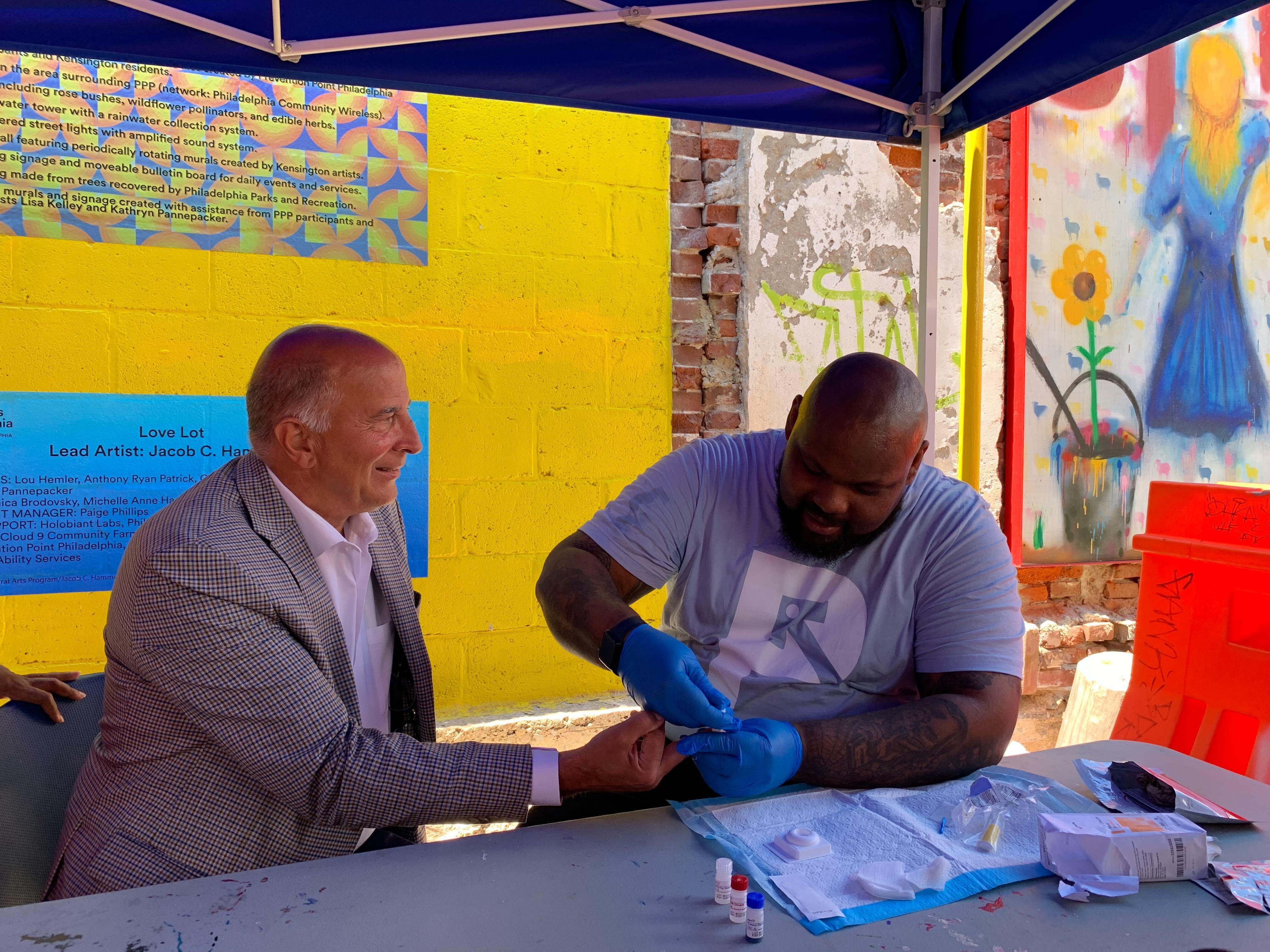At the HIV testing event in Kensington, Northeast Philadelphia resident Robert John Ditmars decided to get tested. Although he doesn’t fall into any high-risk groups, Ditmars said he wanted to lead by example and encourage others to do the same, especially if they inject drugs. “Drug users kind of have a community feeling, so they share a lot, [with] good intentions, but it’s so wrong and dangerous,” he said. “I think for that reason, [testing] is really a good idea.”
Prevention Point Philadelphia health coordinators use rapid-style HIV tests to screen local presidents and clients at the organization’s Love Lot area on Thurs., June 27, 2024. Prevention Point Philadelphia regularly offers daily HIV testing. People who test positive can get treatment immediately. For people who test negative but remain at risk for contracting the virus, the organization offers pre-exposure prophylaxis and post-exposure prophylaxis (PEP) medication, which can prevent infection if exposed to the virus.
New annual cases of HIV have significantly dropped since the height of the crisis in the 1980s and 1990s due to advancements in medication and testing. Many people today live long lives with the virus and never develop AIDS, a more severe stage of illness. Kareem Mims said part of his job is explaining all this to people and dispelling some of the misconceptions and stigma that continue to follow HIV. “We’re putting them on medication right away. Once their viral load is suppressed, HIV doesn’t make you sick anymore and also passing it is incredibly hard,” Mims said. “And that way, we’ll be able to end the epidemic.”
An estimated 18,658 people in Philadelphia are currently living with HIV, according to city data. The disease disproportionately affects men who have sex with men, Black and Hispanic residents and people who inject drugs. A smaller number of HIV cases occur when the virus is passed from mother to infant during pregnancy, and because of other kinds of blood-to-blood contact. More information about local HIV and AIDS testing, prevention and treatment resources can be found online from the city Department of Public Health.
